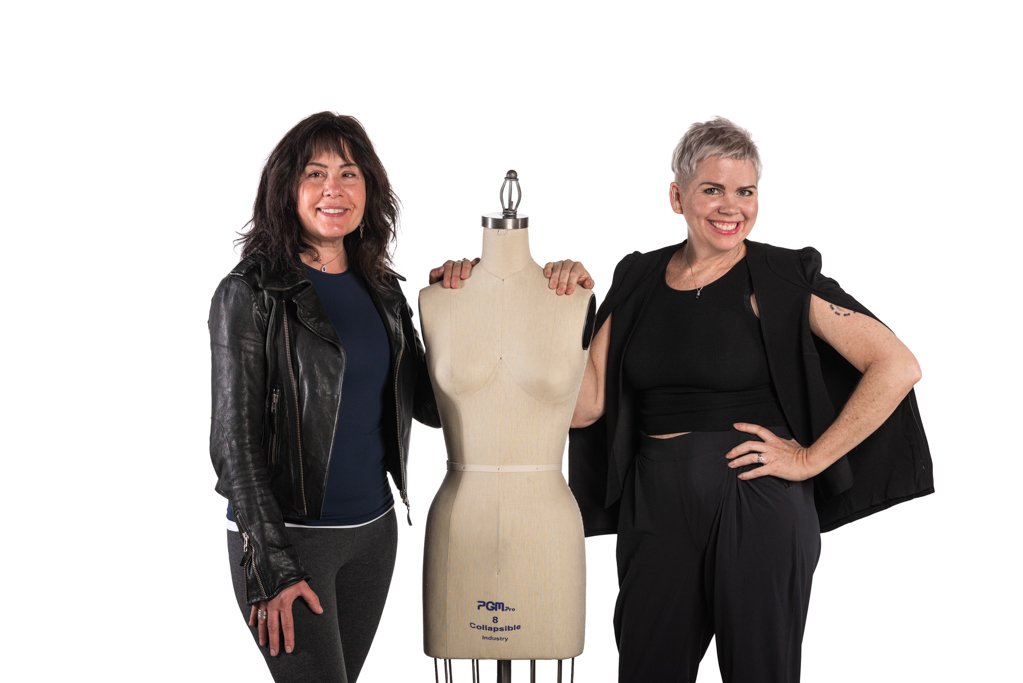
The opportunity to launch a career in the fashion industry now is as close as a historic building on a side street in downtown Tempe.
Everything a beginning designer/apparel entrepreneur could need — from concept, to small-batch manufacturing, to marketing, to delivering creations to customers — is available under one roof at FABRIC (Fashion and Business Resource Innovation Center) Tempe, a nonprofit with sights set on making Arizona a go-to source for fashion-industry entrepreneurs.
The fashion incubator, business accelerator, design studio, academy and manufacturer rolled into one is housed in the former Tempe Performing Arts Center at 132 E. 6th St.
“The whole point here is that we can make everything under one roof,” Angela Johnson, FABRIC Tempe co-founder, said. “Launching a clothing line is difficult. It’s extraordinarily expensive. The odds truly are stacked against you. You can get help here.”
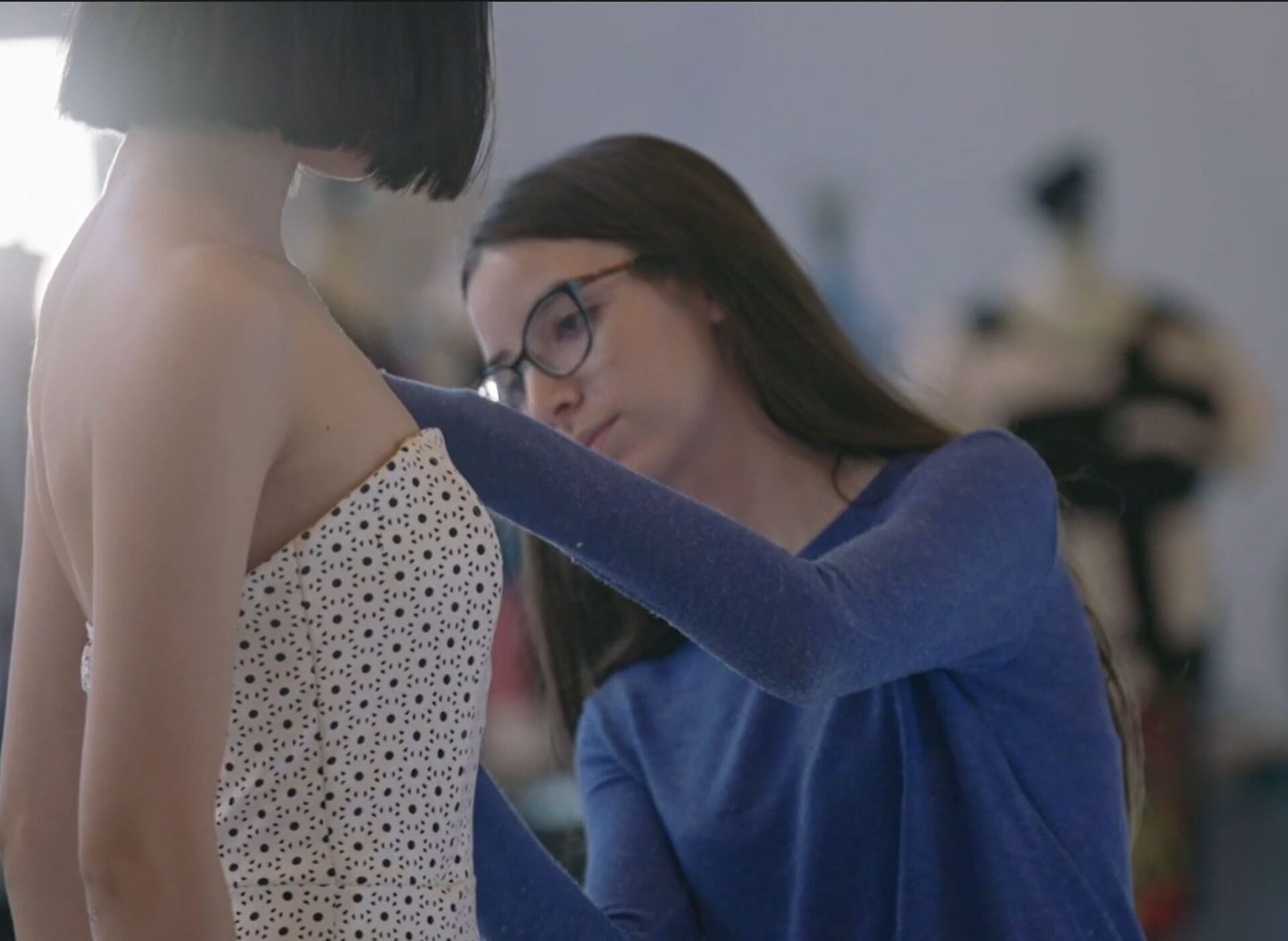
Heretofore, FABRIC’s biggest claim to fame was manufacturing more than a half-million FDA-approved Level 2 and 3 reusable isolation gowns early this year for medical professionals during the height of the COVID-19 pandemic. About 100 sewing machines were on the floor of the main headquarters. The gowns can be worn and washed 100 times.
“The reusable gowns have kept 60,000,000 disposable gowns out of landfills,” Sherri Barry, co-founder of the nonprofit said. “The gowns have also helped keep costs down for health-care providers of all sizes, with a price-per-wash that is lower than a disposable gown.”
It drew a visit and recognition from President Biden and Vice President Harris.
FABRIC Tempe provides training, guidance, innovative industry resources and access to no-minimum manufacturing in order to build sustainable fashion businesses with the goal of establishing Arizona as a modern fashion-industry capital by creating a tech-based, sustainable, closed-loop ecosystem that attracts and supports direct-to-consumer apparel brands.
And now, the 501(c)3 nonprofit is extending its reach to every corner of Arizona and beyond with its recent launch of a subscription website, fabricincubator.com, available anywhere at any time, and loaded with classes and resources. The website brings to fashion-industry career hopefuls the one thing that the best fashion schools don’t offer: how to be their own production manager.
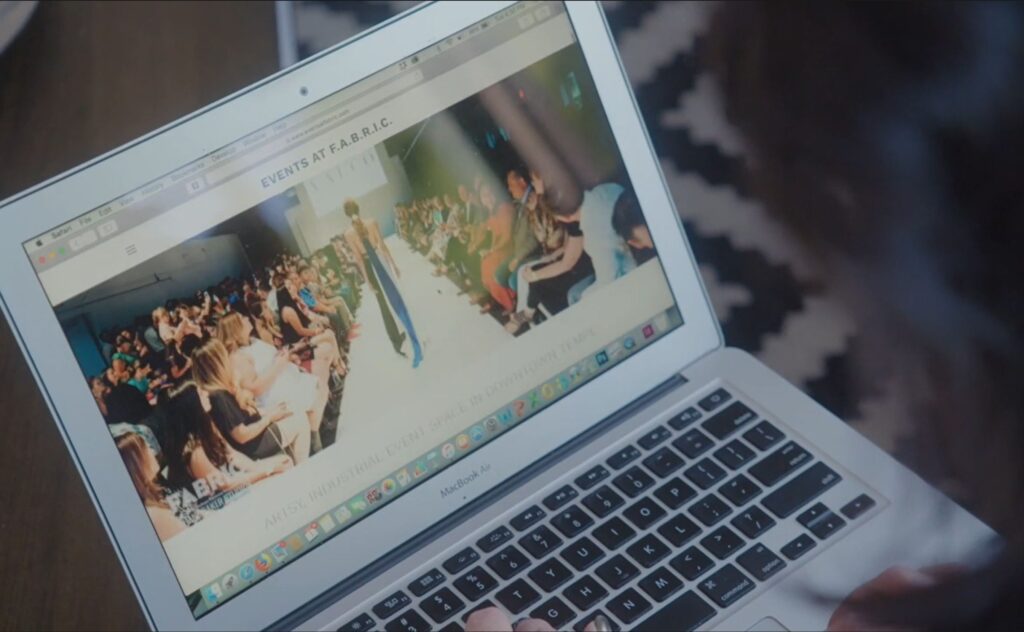
Johnson and Barry expect the unique new website to become their new signature identity by delivering knowledge that doesn’t exist in fashion schools.
“They don’t teach you the real-life stuff you need to know to get a product from idea to development,” Barry said.
Johnson added that design schools are focused more on theory and art.
“We have how-to videos and classes,” Johnson said. “Nobody has this. It’s like a brand new thing, and it’s the future of the industry. The digital roadmap will make a huge difference for those starting out. It really demystifies the steps needed to produce your designs. Access to our program is like having your own virtual production manager, quality controller, technical designer, branding/marketing expert and business coach guiding you through each step.
“We are just different than the big fashion schools. They certainly have their place, and we love to partner with them. We are teaching more real-life skills that you wouldn’t learn in those schools and that you’d normally learn on the job as a production manager. So it’s information that not very many people get the opportunity to learn upfront.”
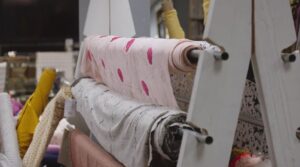
While fabricincubator.com is a subscription service, it remains significantly less expensive than a big-name fashion school, according to Barry and Johnson, and scholarships already have been awarded to hundreds of minority and underserved entrepreneurs to access the site.
“We believe that FABRIC Tempe’s efforts will take a huge step toward establishing Arizona as a modern fashion-industry capital for boutique brands and apparel entrepreneurs,” Johnson said.
The online component complements the array of resources housed in the FABRIC Tempe headquarters for those who live close enough to access the downtown Tempe facility:
- A main-floor events space, including a runway for fashion shows. All new audio-visual, lighting and virtual-event equipment have been installed. An industrial-grade projector hangs from the ceiling. The building can be rented out for fashion shows, concerts or dinners. A runway and round tables are available for setup.
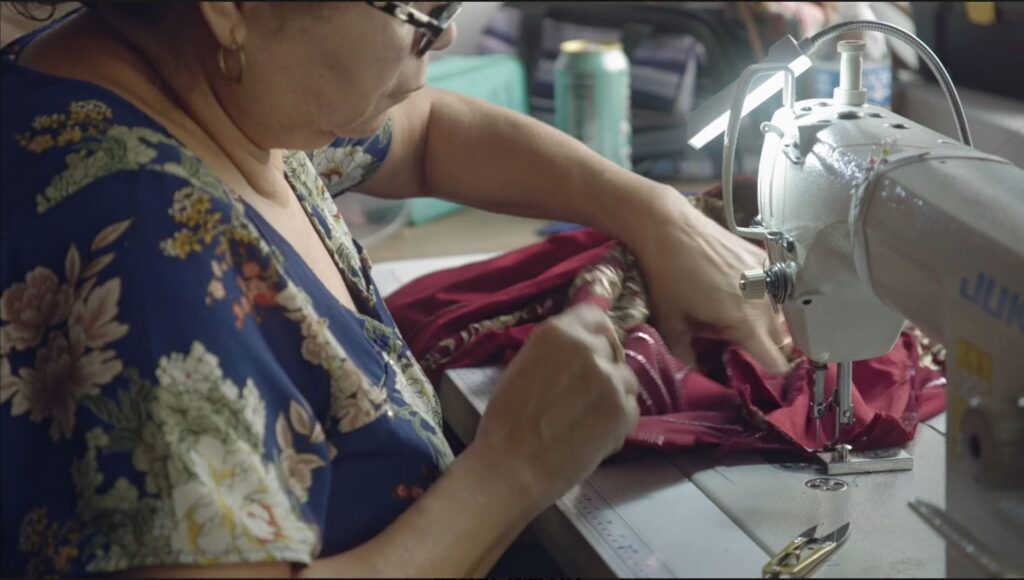
FABRIC Tempe has a sewing room for small-batch manufacturing. - A sewing room for small-batch manufacturing, which doubles as a catering area for events. There is plenty of room for portable ovens and freezers to be wheeled in.
- Co-working studios with access to cutting tables, sewing machines and other resources.
- A design center, with pattern maker in house, a free resource library and no minimum on small-batch manufacturing material.
- A full hair salon and makeup room.
- An in-house photography studio, photographer and sound-recording studio, where voice-overs can be done.

Everything a fashion-industry entrepreneur might need is available under one roof at FABRIC Tempe. - Classrooms/meeting rooms that can be rented.
Everything from yoga pants to wedding dresses have been manufactured in the building.
LONGING FOR A UNIQUE LOOK
Barry, an identical twin, became interested in fashion design because her parents dressed her and her sister identically when they were young. They hated it.
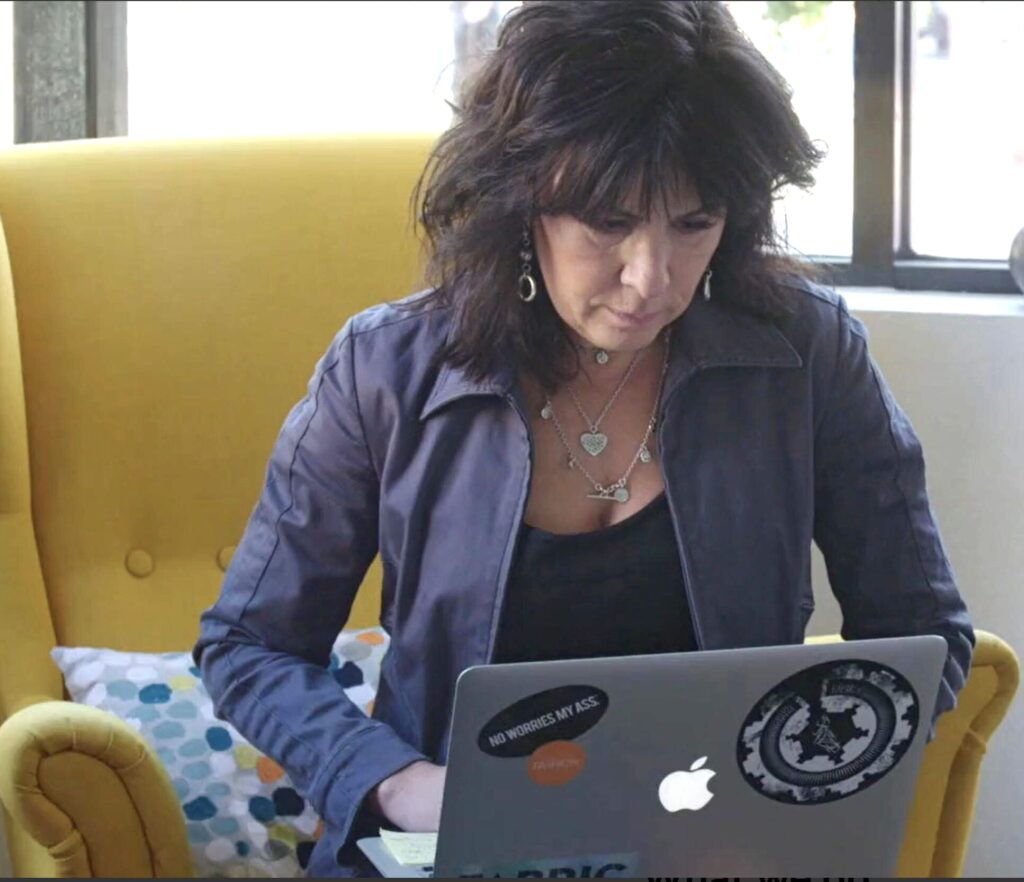
“We were constantly ripping our clothes apart and doing things to them to make them different,” she said.
Eventually, Barry would win an international design competition that launched her career.
Johnson’s passion was creating a space for small brands that make niche products in small quantities.
“Every so often, one of the designers will get my attention and say, ‘I just want you to know that because of FABRIC I am able to run a business here in Arizona,’” Johnson said.
“That’s the kind of stuff that brings up emotions and makes me teary-eyed. When a designer tells you something like that, their life has changed. All of that work every day, when we’re doing stuff like plunging a toilet, that’s the kind of stuff we’ve got to think about.”
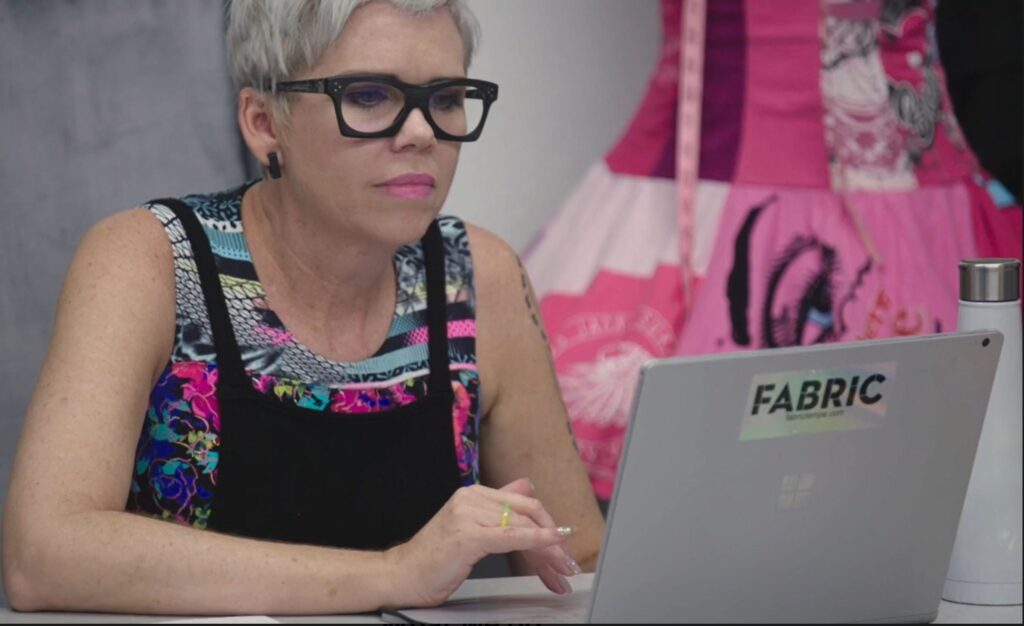
Barry added that FABRIC Tempe is getting calls from all over the country now.
“It used to be just Arizona,” she said. “Because we live it every day, we know what’s going on here and how special it is. What I’m most grateful for is that others are starting to recognize it.
“It’s craziness and it’s just fueled by fashion and gumption and no sleep.”

